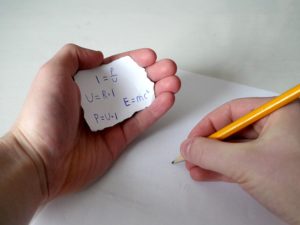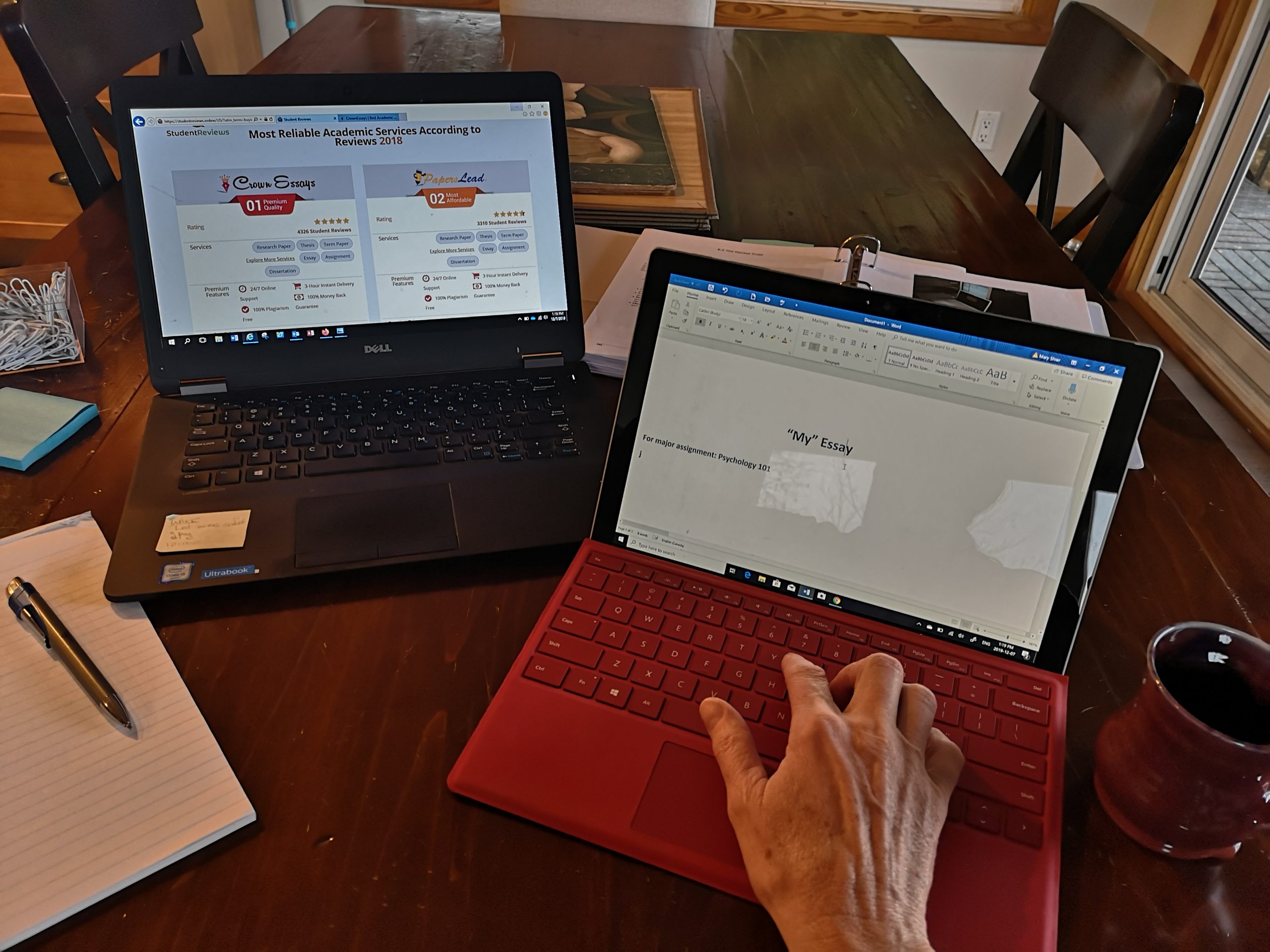Chapter 6 Test Taking
6.5 The Honest Truth
Academic Integrity and Academic Dishonesty
Throughout this book, we have focused on the active process of learning, not just on how to get good grades. The attitude of some students that grades are the be-all and end-all in academics has led many students to resort to academic dishonesty to try to get the best possible grades or handle the pressure of an academic program. Some cultures have a much more relaxed attitude towards cheating, and with the rise of international students in Canadian post-secondary institutions, students must be aware that Canadian institutions take this very seriously. No matter what your reason, it is never OK to cheat.
Although you may be tempted if you’ve heard people say, “Everybody does it,” or “It’s no big deal at my school,” you should be mindful of the consequences of cheating:
- You don’t learn as much. Cheating may get you the right answer on a particular exam question, but it won’t teach you how to apply knowledge in the world after school, nor will it give you a foundation of knowledge for learning more advanced material. When you cheat, you cheat yourself out of opportunities.

Cheating raises test anxiety which impedes performance. - You risk failing the course or even expulsion from school. Each institution has its own definitions of and penalties for academic dishonesty, but most include cheating, plagiarism, and fabrication or falsification. The exact details of what is or is not allowed vary somewhat among different universities and colleges, and even among instructors, so you should be sure to check your school’s website and your instructor’s guidelines to see what rules apply. Ignorance of the rules is seldom considered a valid defense.
- Cheating causes stress. Fear of getting caught will cause you stress and anxiety; this will get in the way of performing well using the information you do know.
- You’re throwing away your money and time. Getting a university education is a big investment of money and effort. You’re simply not getting your full value when you cheat, because you don’t learn as much.
- You are trashing your integrity. Cheating once and getting away with it makes it easier to cheat again, and the more you cheat, the more comfortable you will be giving up your integrity in other areas of life—with perhaps even more serious consequences.
- Cheating lowers your self-esteem. If you cheat, you are telling yourself that you are simply not smart enough to handle learning. It also robs you of the feeling of satisfaction from genuine success.

Technology has made it easier to cheat. Your credit card and an internet connection can procure a paper for you on just about any subject and length. You can copy and paste for free from various websites. Students have made creative use of texting and video on their cell phones to gain unauthorized access to material for exams, but be aware that technology has also created ways for instructors to easily detect these forms of academic dishonesty. Most universities make these tools available to their instructors. Instructors are also modifying their testing approaches to reduce potential academic misconduct by using methods that are harder to cheat at (such as in-class essays that evaluate your thinking and oral presentations).
If you feel uneasy about doing something in your university or college work, trust your instincts. Confirm with the instructor that your intended form of research or use of material is acceptable. Cheating just doesn’t pay.
Examples of Academic Dishonesty
Academic dishonesty can take many forms, and you should be careful to avoid them. The following list is a clear and complete compilation of what most institutions will consider unacceptable academic behaviour:
- Cheating: using unauthorized notes, study aids, or information on an examination; altering a graded work after it has been returned, then submitting the work for regrading; allowing another person to do one’s work and submitting that work under one’s own name; submitting identical or similar papers for credit in more than one course without prior permission from the course instructors.
- Plagiarism: submitting material that in part or as a whole is not entirely one’s own work without attributing those same portions to their correct sources.
- Fabrication: falsifying or inventing any information, data or citation; presenting data that were not gathered in accordance with standard guidelines defining the appropriate methods for collecting or generating data and failing to include an accurate account of the method by which the data were gathered or collected.
- Obtaining an Unfair Advantage: stealing, reproducing, circulating or otherwise gaining access to examination materials prior to the time authorized by the instructor; stealing, destroying, defacing or concealing library materials with the purpose of depriving others of their use; unauthorized collaboration on an academic assignment; retaining, possessing, using or circulating previously given examination materials, where those materials clearly indicate that they are to be returned to the instructor at the conclusion of the examination; intentionally obstructing or interfering with another student’s academic work; or otherwise undertaking activity with the purpose of creating or obtaining an unfair academic advantage over other students’ academic work.
- Aiding and Abetting Academic Dishonesty: providing material, information, or other assistance to another person with knowledge that such aid could be used in any of the violations stated above, or providing false information in connection with any inquiry regarding academic integrity.
- Falsification of Records and Official Documents: altering documents affecting academic records; forging signatures of authorization or falsifying information on an official academic document, grade report, letter of permission, petition, drop/add form, ID card, or any other official university document.
- Unauthorized Access: accessing computerized academic or administrative records or systems; viewing or altering computer records; modifying computer programs or systems; releasing or dispensing information gained via unauthorized access; or interfering with the use or availability of computer systems or information.
Key Takeaways
- Being dishonest can have major consequences that can affect not only your university career, but also your life beyond university.
- “Everybody does it” and “It’s no big deal at my school” are not valid reasons for cheating.
- When you cheat, you are primarily cheating yourself.
Exercise: Academic Dishonesty
- What are the most common forms of academic dishonesty you have heard about at your school? What should be done about them?
- What resources do you have on campus to learn about correct forms of referencing other people’s work in your own?
Text Attributions
- This chapter was adapted from “The Honest Truth” in University Success by N. Mahoney, B. Klassen, and M. D’Eon. Adapted by Mary Shier. CC BY-NC-SA.
Media Attributions
- Exam cheating © Santeri Viinamäki is licensed under a CC BY-SA (Attribution ShareAlike) license

